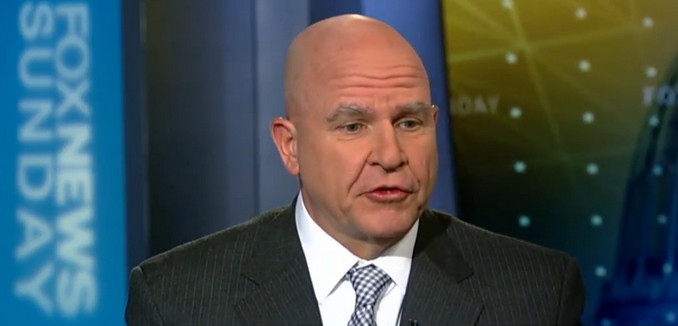The Trump administration’s national security advisor, Lt. Gen. H. R. McMaster, accused Iran of applying the “Hezbollah model” to take advantage of weak regimes and destabilize the Middle East on Fox News this past Sunday.
According to McMaster, the “Hezbollah model” strategy includes targeting weak governments in the region and then funding and supporting militias and other illegal armed groups within these respective countries. Hezbollah is an Iranian-backed Lebanese terror group that has recently consolidated its hold on the government of Lebanon, following last year’s election of Lebanese President, Michel Aoun, an ally of Hezbollah.
In an answer to a question from host, Chris Wallace, as to whether the United States, in the wake of the nuclear deal that ended many sanctions on Iran, had the leverage to pressure Iran with sanctions, McMaster answered in the affirmative.
McMaster’s reference to Iranian-backed “militias and other illegal armed groups,” are apparent references to the Shiite militias, known as popular mobilization units (PMUs), operating in Iraq and with the Houthi rebels, who are waging war against the Western-backed government in Yemen.
His assessment is in line with news reports in recent months highlighting Iran’s role in destabilizing other Arab nations.
McMaster further explained that Iran’s abetting the “murderous” Assad regime in Syria demonstrated its bad intentions. Hezbollah and the PMUs have played a significant role in defending the rule of Bashar al-Assad in Syria, and have been accused of war crimes in the fighting.
In November of last year Iraq passed a law allowing the PMUs to keep their command structure intact. This has raised fears among Iraq’s Sunnis, who believe they could be victimized by the Shiite militias. Furthermore, British researchers in December of 2016 found evidence that Iran was maintaining a “weapons pipeline,” keeping the Houthis armed.
Iran hasn’t always been reticent about its involvement in these other conflicts. In March of this year, Iran’s foreign ministry spokesman stated that Iran rejects “any intervention in the internal affairs of Arab countries.” Despite this claim, Ali Riza Zakani, who is a reported confidante of Iranian Supreme Leader Ayatollah Ali Khamenei, boasted in November 2014, after the Houthis seized the Yemen capital, Sanaa, that Iran then controlled four Arab capitals. The other three capitals referenced were Beirut, Damascus, and Baghdad.
[Photo: Fox News ]




